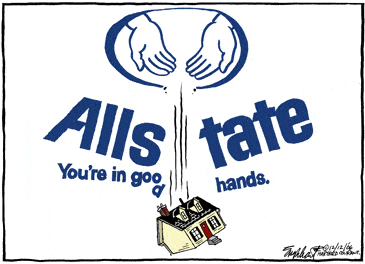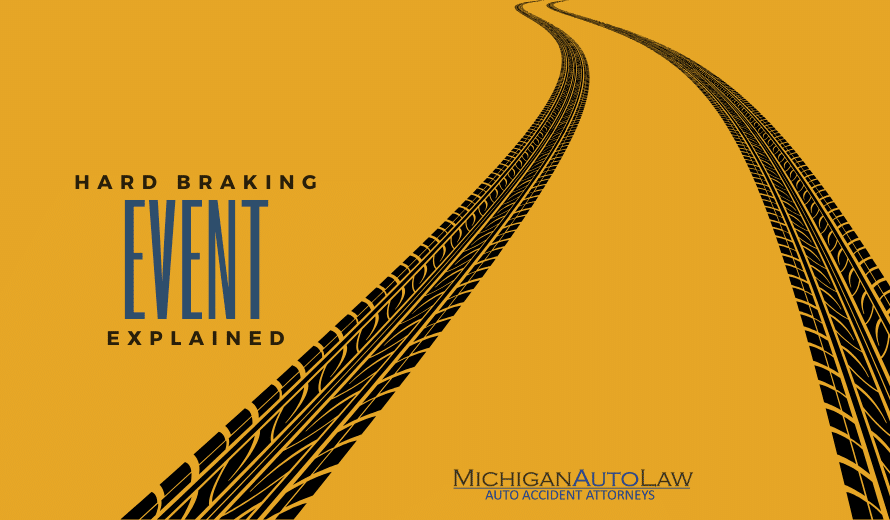How lawyers can protect their clients when Allstate first invites, and then fails to act in good faith at a facilitation or mediation

Has Allstate ever conned you into adjourning dates and participating in a “facilitation” or mediation on an auto accident lawsuit, No Fault/PIP lawsuit, or an uninsured motorist claim?
Here’s what often happens: Dates are adjourned, because the attorneys from Allstate promise you or the trial court judge that the facilitation will be meaningful, and then when the date finally arrives, the Allstate lawyer shows up at facilitation without its adjuster. The facilitation begins and then no effort is made to settle the case whatsoever.
I know lawyers everywhere are reading this now and shaking their heads, angry at the time and money they wasted. And it isn’t just the time and money of paying for a day or half day of ADR and the mediator’s time. It’s the time and delay for your client, who must now wait even longer before a trial date. And even though most personal injury cases do eventually settle short of trial, if dates get adjourned, then the claims adjuster will just put your client’s file at the bottom of the pile. The insurance company can hold onto its money longer, and has no reason to settle until it has to.
If this has happened to you, you’re not alone. A lot of auto accident attorneys have been there. And the number grows by the day as other insurance companies copy this delaying tactic.
But attorneys can stop this ridiculous delaying tactic now if, going forward, we follow these six steps when responding to any of Allstate’s “offers” for a “faux” ADR session:
- Demand that Allstate agree to pay all facilitation costs if no settlement is reached.
- Do not agree to adjourn trial dates for a facilitation.
- Demand that your judge “get tough” if Allstate tries to pull off its “faux” facilitation and doesn’t come in good faith.
- File a motion for sanctions for “failure to attend”: If Allstate shows up without its adjusters and without an attorney who has any authority to settle the case an attorney should file a motion for sanctions for “failure to attend” (under MCR 2.410(D)(3)) requesting that Allstate be defaulted, that its affirmative defenses and/or counter-claims be dismissed and that Allstate pay all of the victim’s “reasonable expenses” and an hourly attorney rate sanction for the time the plaintiff’s attorney wasted related to the “faux facilitation.”
- File a motion for sanctions for initiating a frivolous facilitation proceeding: If the scenario in No. 4 occurs, an attorney should file also file a motion for sanctions, “reasonable” costs and expenses and “reasonable attorney fees” based on Allstate’s lawyer’s having brought or initiated a “frivolous” facilitation proceeding in violation of Michigan Rule of Professional Conduct 3.1, MCL 600.2591 and MCR 2.114(D), (E) and (F)(“Sanctions for Frivolous Claims” include “reasonable expenses incurred because of the” frivolous claim, “including reasonable attorney fees.”)
- Refuse to go to “facilitation” with Allstate again, next time the defense attorney is imploring you to facilitate with trial coming up.
Sample motion for costs and attorney fees when an insurance company fails to participate in good faith at mediation or facilitation
Attached is a copy of an excellent motion drafted by Michigan Auto Law attorney Josh Terebelo.
It is a “Motion for Costs and Attorney Fees Relative To Bad Faith Facilitation Requested by … Allstate Insurance Company,” and, in the motion, Josh Terebelo outlines Allstate’s “Deny, Delay, Defend” tactics. Josh won the motion, and won costs and attorney fees from Allstate. The name of Josh’s client has been redacted for privacy.
Additionally, Josh also lays out why Allstate’s abuse of the court system entitles Josh’s client to reimbursement of costs and attorney fees as reasonable sanctions under MCR 2.410.
Allstate’s ‘Deny, Delay, Defend’ tactics
When it comes to stonewalling auto accident victims’ claims, Allstate is infamous for its mastery of the “Deny, Delay, Defend” strategy employed by many auto insurance companies.
In my blog post, “Allstate’s 5 Sins: Profit-boosting tactics that harmed auto accident victims,” I detailed some of the auto insurer’s many shameful tactics.
Allstate hasn’t changed its old ways.
Allstate’s ‘faux’ facilitation and mediation tactics
Allstate latest “Deny, Delay, Defend” scheme involves “stonewalling” personal injury lawsuits by suggesting to attorneys and busy courts that plaintiffs should mediate or facilitate and adjourn discovery and trial dates. Lawyers are led to believe a settlement – on the victim’s terms – will be forthcoming if they agree to a “facilitation” and both sides can save the considerable time and expensive costs of preparing for trial.
A “facilitation,” or a “mediation,” are common alternative dispute resolution processes in which a neutral third party (often a respected attorney or former judge) facilitates between both parties to a lawsuit. The neutral “assists in identifying issues, and helps explore solutions to promote a mutually acceptable settlement.” (MCR 2.411(A)(2))
However, the true nature of what Allstate is doing is revealed when the accident victim and the victim’s lawyer show up for the “facilitation” only to find that none of Allstate’s adjusters are present and the in-house Allstate lawyer or the defense attorney from an “outside” law firm who is appearing for the defendant (and who is hired and paid by Allstate) refuses to offer any real money to settle the case. Thousands of dollars that must be paid to the mediator, and everyone’s time is then wasted – and often the dates for trial are adjourned many months later down the road.
Going forward with Allstate
The key to putting an end to Allstate’s l behavior is following the six steps I’ve outlined in this blog post. If we do, then we’ll send a clear message to our clients that the “good hands” they’re in are ours – not Allstate’s.


